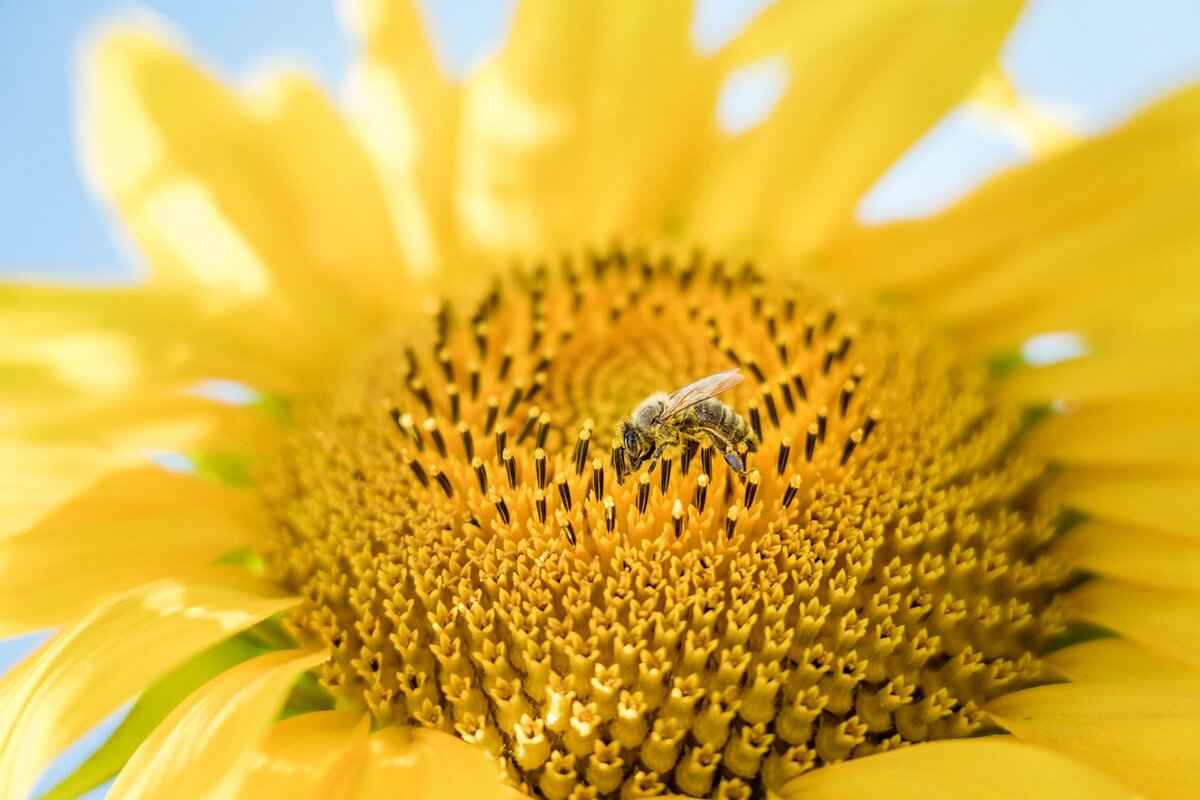Chia seeds have emerged as a popular superfood, particularly among women seeking to enhance their health and well-being. These tiny seeds, derived from the Salvia hispanica plant, are packed with essential nutrients that can significantly impact hormonal balance and skin health. In this article, we will delve into the numerous benefits of chia seeds, focusing on how they can improve hormonal fluctuations and promote radiant skin.
Chia seeds are tiny, black or white seeds that are rich in omega-3 fatty acids, fiber, and protein. They are considered a nutrient-dense food, providing an excellent source of antioxidants, vitamins, and minerals. Their unique ability to absorb water makes them a versatile ingredient in various recipes, from smoothies to baked goods.
Chia seeds contain phytoestrogens, plant compounds that can mimic estrogen in the body. This property is particularly beneficial for women experiencing hormonal fluctuations, such as during menstruation or menopause. By incorporating chia seeds into their diet, women may find relief from common symptoms associated with hormonal imbalances.
Phytoestrogens play a crucial role in regulating hormonal levels. They can help alleviate symptoms such as:
- Hot flashes
- Mood swings
- Menstrual irregularities
By understanding how these compounds function, women can take proactive steps to manage their hormonal health more effectively.
During menopause, many women experience significant hormonal changes. Chia seeds may provide a natural remedy for discomfort by:
- Reducing the frequency and intensity of hot flashes
- Stabilizing mood swings
Incorporating chia seeds into daily meals can be an effective strategy for managing menopause symptoms.
Women with irregular menstrual cycles may also benefit from chia seeds. Their rich nutrient profile supports overall reproductive health, potentially leading to more regular cycles. The combination of fiber and healthy fats in chia seeds can help balance hormones, making them a valuable addition to a woman’s diet.
Finding creative ways to include chia seeds in your meals can maximize their benefits. Here are some practical tips:
- Add chia seeds to smoothies for an extra nutrient boost.
- Mix them into yogurt or oatmeal for added texture and health benefits.
- Use chia seeds as an egg substitute in baking.
Beyond hormonal balance, chia seeds are also beneficial for skin health. Their high antioxidant content helps combat skin aging and promotes a healthy complexion.
The antioxidants found in chia seeds play a vital role in protecting skin cells from damage caused by free radicals. This protective effect can contribute to a more youthful and radiant appearance.
Chia seeds are hydrophilic, meaning they absorb water. This property helps maintain skin hydration and elasticity, crucial for preventing dryness and promoting a plump, healthy look. Regular consumption of chia seeds can lead to improved skin texture and overall health.
While chia seeds are generally safe, some individuals may experience side effects. It is essential to be aware of potential issues:
Due to their high fiber content, chia seeds can cause digestive discomfort if consumed in excess. It’s important to start with small portions and gradually increase intake to avoid any digestive issues.
Though rare, some individuals may be allergic to chia seeds. Symptoms of an allergic reaction can include itching, swelling, or gastrointestinal distress. If you suspect an allergy, it’s advisable to consult a healthcare professional.
In conclusion, chia seeds offer a multitude of benefits for women, particularly regarding hormonal balance and skin health. By incorporating these tiny seeds into your diet, you can enhance your overall well-being and enjoy their numerous health benefits.

What Are Chia Seeds?
Chia seeds are small, nutrient-rich seeds that come from the Salvia hispanica plant, native to Mexico and Guatemala. These tiny seeds have gained immense popularity as a superfood due to their remarkable health benefits, particularly for women. Packed with essential nutrients, chia seeds are a fantastic addition to a balanced diet, offering a variety of advantages that support overall health and wellness.
Chia seeds are tiny, oval-shaped seeds that are black or white in color. They are an excellent source of omega-3 fatty acids, which are crucial for heart health and brain function. Additionally, chia seeds are loaded with dietary fiber, protein, and various vitamins and minerals, making them a complete nutritional package. When soaked in liquid, chia seeds can absorb up to 12 times their weight, forming a gel-like consistency that can be used in various recipes.
Chia seeds are particularly beneficial for women’s hormonal health. They contain phytoestrogens, plant compounds that can mimic estrogen in the body. This property makes them valuable for women experiencing hormonal fluctuations, such as those related to menopause or menstrual irregularities.
Phytoestrogens play a significant role in regulating hormonal balance. By mimicking estrogen, they can help alleviate symptoms associated with hormonal changes, such as hot flashes, mood swings, and irregular menstrual cycles. Including chia seeds in your diet may provide a natural way to manage these symptoms effectively.
During menopause, women often face a variety of uncomfortable symptoms due to hormonal changes. Chia seeds can help mitigate these effects by providing essential nutrients that support overall health. Their high omega-3 content may help reduce inflammation and improve mood, making them a great ally during this transition.
For women with irregular menstrual cycles, chia seeds can be a beneficial addition to their diet. The combination of fiber, protein, and healthy fats in chia seeds supports reproductive health, potentially leading to more regular cycles. Incorporating chia seeds into meals can promote hormonal balance and overall well-being.
Finding creative ways to include chia seeds in your daily meals can maximize their benefits. Here are some practical tips:
- Add chia seeds to smoothies for an extra nutrient boost.
- Mix them into yogurt or oatmeal for added texture and health benefits.
- Use chia seeds as an egg substitute in baking by mixing them with water.
- Sprinkle chia seeds on salads or soups for a crunchy topping.
Not only are chia seeds beneficial for hormonal balance, but they also promote skin health. Their high content of antioxidants helps combat skin aging, while their hydrophilic properties support hydration and elasticity.
The antioxidants found in chia seeds protect skin cells from damage caused by free radicals, which can lead to premature aging. By incorporating chia seeds into your diet, you can enhance your skin’s resilience and maintain a youthful appearance.
Chia seeds are excellent at retaining moisture, which is vital for maintaining skin hydration and elasticity. Consuming chia seeds can help prevent dryness and promote a plump, healthy complexion.
While chia seeds are generally safe for most people, some may experience side effects. It’s essential to be aware of potential issues such as:
- Digestive Issues: Due to their high fiber content, excessive consumption can lead to digestive discomfort.
- Allergic Reactions: Although rare, some individuals may be allergic to chia seeds. Symptoms can include itching, swelling, or difficulty breathing.

How Do Chia Seeds Support Hormonal Balance?
Chia seeds, derived from the Salvia hispanica plant, are often hailed as a superfood due to their impressive nutritional profile. Among their many benefits, they play a significant role in supporting hormonal balance, particularly for women. This section delves into how chia seeds can help regulate hormones and alleviate related symptoms.
Chia seeds contain phytoestrogens, which are plant-derived compounds that mimic estrogen in the body. This characteristic makes them particularly beneficial for women experiencing hormonal fluctuations, such as those related to menstruation or menopause. By incorporating chia seeds into their diet, women may find relief from various symptoms associated with hormonal imbalances.
Phytoestrogens can play a crucial role in regulating hormonal levels. For women undergoing menopause, these compounds may help to alleviate symptoms such as hot flashes, night sweats, and mood swings. Research suggests that phytoestrogens can bind to estrogen receptors, providing a gentle boost to hormonal levels when needed. This natural approach can empower women to manage their hormonal health more effectively.
- Hot Flashes Relief: Chia seeds may help reduce the frequency and intensity of hot flashes.
- Mood Stabilization: Regular consumption can contribute to improved mood and emotional stability.
- Bone Health: The omega-3 fatty acids in chia seeds support bone density, which can be compromised during menopause.
By integrating chia seeds into their diets, women can harness these benefits to navigate the challenges of menopause with greater ease.
For women with irregular menstrual cycles, chia seeds can serve as a natural ally. Their rich nutrient profile, including fiber, protein, and omega-3 fatty acids, supports overall reproductive health. Regular consumption of chia seeds may help to:
- Balance Hormones: The phytoestrogens in chia seeds can assist in normalizing estrogen levels.
- Improve Cycle Regularity: A more balanced hormone profile can lead to more predictable menstrual cycles.
- Reduce Cramps: The anti-inflammatory properties of chia seeds may help alleviate menstrual discomfort.
Women seeking to regulate their menstrual cycles may find chia seeds a beneficial addition to their diets.
To maximize the benefits of chia seeds for hormonal balance, consider the following practical tips:
- Add to Smoothies: Blend chia seeds into your morning smoothie for a nutritious boost.
- Use in Baking: Incorporate chia seeds into muffins, bread, or energy bars.
- Make Chia Pudding: Soak chia seeds in almond milk overnight for a delicious and filling snack.
By experimenting with different recipes, you can easily include chia seeds in your daily meals.
In summary, chia seeds are a powerful tool for women looking to support their hormonal balance. With their rich content of phytoestrogens and essential nutrients, these tiny seeds offer a natural way to alleviate symptoms associated with hormonal fluctuations. Whether during menopause or for menstrual regulation, incorporating chia seeds into your diet can lead to significant improvements in overall well-being.
Phytoestrogens and Their Role
Phytoestrogens are plant-derived compounds that possess estrogen-like properties, making them a significant topic of interest for women’s health. These natural substances can mimic the effects of estrogen in the body, potentially providing relief from various hormonal issues, particularly during significant life transitions such as menopause.
Phytoestrogens are non-steroidal plant compounds that can bind to estrogen receptors in the body. They are found in a variety of foods, including soy products, flaxseeds, and, notably, chia seeds. Their ability to mimic estrogen makes them particularly beneficial for women experiencing hormonal fluctuations.
During menopause, women experience a natural decline in estrogen levels, leading to symptoms such as hot flashes, night sweats, and mood swings. Phytoestrogens can help alleviate these symptoms by providing a mild estrogenic effect, thereby offering a natural alternative to hormone replacement therapy.
Many women face challenges with irregular menstrual cycles, often due to hormonal imbalances. Incorporating phytoestrogens into the diet may help in regulating these cycles. By mimicking estrogen, these compounds can support the body’s natural hormonal rhythms, leading to more consistent menstrual patterns.
- Bone Health: Phytoestrogens may help in maintaining bone density, reducing the risk of osteoporosis.
- Heart Health: They can also contribute to cardiovascular health by improving cholesterol levels.
- Skin Health: By promoting collagen production, phytoestrogens can enhance skin elasticity and hydration.
To harness the benefits of phytoestrogens, women can easily incorporate them into their diets. Here are some practical tips:
1. Add chia seeds to smoothies or yogurt.2. Use flaxseeds in baking or as a topping for cereals.3. Include soy products like tofu or edamame in meals.
While phytoestrogens are generally considered safe, it’s important to consume them in moderation. Excessive intake may lead to hormonal imbalances or digestive issues for some individuals. It’s advisable to consult with a healthcare provider before making significant dietary changes, especially for those with hormone-sensitive conditions.
Understanding the role of phytoestrogens in women’s health can empower individuals to make informed dietary choices. By incorporating foods rich in phytoestrogens, women can effectively manage hormonal health, alleviate menopausal symptoms, and support overall well-being.
Benefits During Menopause
Menopause is a natural phase in a woman’s life, often marked by significant hormonal shifts. These changes can lead to a variety of uncomfortable symptoms, including hot flashes, mood swings, and sleep disturbances. As women navigate this transition, many seek natural remedies to alleviate these symptoms. One such remedy gaining popularity is chia seeds. These tiny seeds are packed with nutrients and may offer a range of benefits during menopause.
Chia seeds are a rich source of omega-3 fatty acids, fiber, protein, and essential minerals. Their unique nutritional profile makes them an excellent addition to the diets of women experiencing menopause. Here are several ways chia seeds can support women during this transitional phase:
- Hot Flashes Relief: Chia seeds contain phytoestrogens, which can mimic estrogen in the body. This property may help in reducing the frequency and intensity of hot flashes, providing much-needed comfort.
- Mood Stabilization: The high omega-3 content in chia seeds is known to support brain health and can help stabilize mood swings commonly experienced during menopause.
- Improved Sleep Quality: By promoting relaxation and reducing anxiety, chia seeds may contribute to better sleep patterns, helping women feel more rested.
- Bone Health: Rich in calcium and phosphorus, chia seeds can support bone density, which is crucial as the risk of osteoporosis increases during menopause.
Phytoestrogens are plant-based compounds that can have estrogen-like effects in the body. They play a significant role in managing hormonal fluctuations during menopause. By incorporating chia seeds into their diets, women may find relief from:
- Menstrual Irregularities: For women still experiencing menstrual cycles, chia seeds can help regulate hormones, leading to more consistent cycles.
- Emotional Well-Being: The calming effects of phytoestrogens may help mitigate mood swings and irritability.
Adding chia seeds to your daily meals is simple and versatile. Here are some practical tips:
- Chia Pudding: Mix chia seeds with almond milk and sweeten with honey for a nutritious breakfast or snack.
- Smoothies: Blend chia seeds into your favorite smoothies for added nutrition and a thick texture.
- Baking: Incorporate chia seeds into muffins, bread, or energy bars for a healthy boost.
While chia seeds are generally safe for most people, it’s essential to be aware of potential side effects:
- Digestive Issues: Due to their high fiber content, consuming excessive amounts of chia seeds can lead to digestive discomfort. It’s advisable to start with small servings and gradually increase intake.
- Allergic Reactions: Although rare, some individuals may have allergies to chia seeds. Symptoms can include itching, swelling, or difficulty breathing. If any of these occur, seek medical attention immediately.
In conclusion, chia seeds offer a natural and effective way to help manage menopause symptoms. Their rich nutrient profile and beneficial properties make them a valuable addition to the diet of women during this transitional phase. By incorporating chia seeds into daily meals, women can take proactive steps towards enhancing their overall well-being during menopause.
Regulating Menstrual Cycles
For many women, irregular menstrual cycles can be a source of concern and discomfort. These irregularities can stem from various factors, including stress, hormonal imbalances, and dietary habits. Among the natural remedies available, chia seeds have emerged as a powerful ally in promoting hormonal balance and supporting menstrual regularity.
Chia seeds, derived from the Salvia hispanica plant, are known for their rich nutrient profile. They are packed with essential fatty acids, particularly omega-3s, fiber, and protein. These nutrients play a crucial role in maintaining overall reproductive health. The high fiber content in chia seeds aids in digestion and stabilizes blood sugar levels, which can be beneficial for women experiencing irregular cycles.
How Do Chia Seeds Help with Hormonal Regulation?
- Phytoestrogens: Chia seeds contain phytoestrogens, which are plant-derived compounds that can mimic estrogen in the body. This property can be particularly beneficial for women facing hormonal fluctuations, as it may help alleviate symptoms associated with menstrual irregularities.
- Anti-inflammatory Properties: The omega-3 fatty acids in chia seeds possess anti-inflammatory properties that can help reduce symptoms of hormonal imbalances, such as mood swings and discomfort during menstruation.
By incorporating chia seeds into your diet, you may experience a more balanced hormonal environment, which can lead to more regular menstrual cycles. For instance, adding chia seeds to your morning smoothie or oatmeal can provide a nutrient boost while also supporting your reproductive health.
Practical Ways to Incorporate Chia Seeds
- Chia Pudding: Mix chia seeds with your choice of milk or yogurt and let it sit overnight. In the morning, you can add fruits and nuts for a delicious breakfast.
- Smoothies: Blend chia seeds into your smoothies for added nutrition and a satisfying texture.
- Baking: Substitute a portion of flour with ground chia seeds in your baking recipes for a healthy twist.
Are There Any Risks?
While chia seeds are generally safe for most women, it is essential to consume them in moderation. Due to their high fiber content, excessive consumption can lead to digestive issues. It is advisable to gradually introduce chia seeds into your diet and drink plenty of water to help with digestion.
In summary, chia seeds offer a natural and nutrient-rich way to support hormonal balance and regulate menstrual cycles. By incorporating these tiny seeds into your diet, you may find relief from the discomfort associated with irregular cycles and promote overall reproductive health.
Incorporating Chia Seeds into Your Diet
Incorporating chia seeds into your diet can be a simple yet effective way to enhance your overall health. These tiny seeds are packed with nutrients and can easily be added to a variety of meals and snacks. Here are some practical tips to help you maximize the benefits of chia seeds in your daily meals.
One of the easiest ways to include chia seeds in your diet is by adding them to your breakfast. Consider making chia seed pudding by soaking chia seeds in your choice of milk or yogurt overnight. This creates a delicious and nutritious meal that you can top with fruits, nuts, or honey for added flavor.
Chia seeds can be seamlessly blended into smoothies. Just a tablespoon can enhance the nutritional profile of your drink without altering the taste. They provide a good source of protein and healthy fats, making your smoothies even more satisfying.
Chia seeds can also act as a natural thickening agent. When added to soups or sauces, they absorb liquid and create a thicker consistency. This not only enhances the texture but also boosts the nutritional content of your meals.
For a delightful crunch, sprinkle chia seeds on top of your salads. They add a nutty flavor and are an excellent source of omega-3 fatty acids. This simple addition can transform an ordinary salad into a superfood dish.
Chia seeds can be incorporated into various baking recipes. Whether you are making bread, muffins, or pancakes, consider adding chia seeds to the mix. They can replace eggs in vegan recipes when mixed with water, creating a binding effect.
Chia seeds can be used to make energy bars or balls. Combine chia seeds with oats, nut butter, and your favorite sweetener to create a nutritious snack that provides sustained energy throughout the day. These snacks are perfect for on-the-go munching.
Chia seeds can also be used to create refreshing drinks. Mix chia seeds with water, lemon juice, and a natural sweetener for a hydrating beverage. This drink not only quenches your thirst but also provides essential nutrients.
While chia seeds are highly nutritious, it’s important to consume them in moderation. A typical serving size is about one to two tablespoons per day. This allows you to enjoy the benefits without experiencing any digestive discomfort.
By incorporating these tips into your daily routine, you can easily add chia seeds to your diet and reap their numerous health benefits. Whether it’s through smoothies, baked goods, or salads, these tiny seeds can play a significant role in enhancing your meals and overall wellness.

Chia Seeds for Skin Health: What Are the Benefits?
Chia seeds have gained popularity in recent years, not just as a superfood for overall health, but also for their remarkable benefits for skin health. Packed with essential nutrients, these tiny seeds offer a multitude of advantages that can help you achieve a radiant complexion. In this section, we will delve into the specific benefits of chia seeds for your skin and how they can contribute to a youthful appearance.
Chia seeds are rich in antioxidants, omega-3 fatty acids, and various vitamins and minerals that play a crucial role in maintaining skin health. Let’s explore how these components work together to enhance your skin’s vitality.
The high antioxidant content in chia seeds helps combat oxidative stress, which is a significant factor in skin aging. Antioxidants protect skin cells from damage caused by free radicals, which can lead to premature aging signs such as wrinkles and fine lines. By incorporating chia seeds into your diet, you can help ensure that your skin remains youthful and radiant.
One of the unique properties of chia seeds is their ability to absorb water. They can hold up to 12 times their weight in liquid, making them incredibly effective for maintaining skin hydration. Proper hydration is essential for skin elasticity, which helps prevent dryness and gives your skin a plump, healthy appearance. Consuming chia seeds can significantly contribute to your skin’s moisture levels, enhancing its overall texture.
Chia seeds are an excellent source of omega-3 fatty acids, particularly alpha-linolenic acid (ALA). These fatty acids are known for their anti-inflammatory properties, which can help reduce redness and irritation in the skin. Regular consumption of chia seeds may assist in managing conditions such as acne or eczema, promoting a clearer and more even skin tone.
In addition to antioxidants and omega-3s, chia seeds are rich in essential vitamins and minerals, including calcium, magnesium, and zinc. These nutrients are vital for skin repair and regeneration. Zinc, for instance, is known to aid in healing and can be particularly beneficial for those with acne-prone skin. By nourishing your skin from within, chia seeds can help you achieve a healthier complexion.
Integrating chia seeds into your daily routine is simple and versatile. Here are some practical ideas:
- Add chia seeds to smoothies for an extra nutrient boost.
- Mix them into yogurt or oatmeal for added texture and health benefits.
- Use chia seeds as a topping for salads or soups.
- Prepare chia pudding by soaking them in your choice of milk or plant-based alternative.
By incorporating chia seeds into your meals, you not only enhance your overall health but also support your skin’s well-being.
While chia seeds are generally safe for most people, it’s essential to consume them in moderation. Overconsumption can lead to digestive issues due to their high fiber content. Additionally, some individuals may experience allergic reactions, although this is rare. If you notice any adverse effects, it’s advisable to consult a healthcare professional.
In summary, chia seeds offer numerous benefits for skin health, from antioxidant protection to hydration and essential nutrient support. By adding these tiny seeds to your diet, you can take significant steps towards achieving a glowing and youthful complexion.
Antioxidants and Skin Protection
Chia seeds, often hailed as a superfood, are not just a nutritional powerhouse; they also offer significant benefits for skin health. One of the key components of chia seeds is their high antioxidant content, which plays a crucial role in protecting the skin from damage. But how do these antioxidants work, and what makes them so effective?
Free radicals, which are unstable molecules produced by environmental factors such as UV radiation, pollution, and stress, can wreak havoc on skin cells. They contribute to premature aging, leading to wrinkles, fine lines, and a dull complexion. The antioxidants in chia seeds, including quercetin, chlorogenic acid, and caffeic acid, help neutralize these free radicals, thereby reducing their harmful effects.
By incorporating chia seeds into your diet, you can enhance your skin’s natural defenses. These antioxidants not only protect skin cells but also promote a more youthful appearance by improving skin elasticity and firmness. Regular consumption of chia seeds can lead to a radiant complexion, making them an excellent addition to any skincare regimen.
How Do Antioxidants Contribute to Youthful Skin?
- Cell Regeneration: Antioxidants facilitate the regeneration of skin cells, helping to repair damage and maintain a vibrant look.
- Inflammation Reduction: They also help reduce inflammation, which can lead to conditions such as acne and rosacea.
- Hydration Support: Chia seeds are hydrophilic, absorbing up to 12 times their weight in water, which aids in skin hydration and plumpness.
Can Chia Seeds Help with Specific Skin Concerns?
Yes, chia seeds can be particularly beneficial for various skin concerns:
- Acne: Their anti-inflammatory properties can help reduce acne flare-ups.
- Dryness: The hydration properties of chia seeds can combat dryness and flakiness.
- Aging: Regular intake can minimize the appearance of fine lines and wrinkles.
In addition to their internal benefits, chia seeds can also be used topically. A mask made from chia gel can provide an extra layer of hydration and nourishment. To create this mask, simply mix chia seeds with water and let them sit until they form a gel-like consistency. Apply this gel to your face and let it sit for about 15-20 minutes before rinsing off for a refreshing boost to your skin.
How to Incorporate Chia Seeds into Your Diet?
Adding chia seeds to your daily meals is easy and versatile. Here are some practical tips:
- Add them to smoothies for a nutrient boost.
- Mix them into yogurt or oatmeal.
- Use them in baking as a substitute for eggs.
- Sprinkle them on salads or soups for added crunch.
In conclusion, the antioxidants found in chia seeds are a powerful ally in the quest for healthy, youthful skin. Their ability to combat free radicals, reduce inflammation, and support hydration makes them an essential component of a holistic approach to skincare. By incorporating chia seeds into your diet, you can not only improve your overall health but also achieve a radiant, glowing complexion.
Hydration and Skin Elasticity
Chia seeds have become increasingly popular in the health and wellness community, and for good reason. These tiny seeds are packed with nutrients that offer a wide array of benefits, particularly for women. One of the standout features of chia seeds is their ability to promote hydration and enhance skin elasticity, making them a valuable addition to any skincare regimen.
Chia seeds are known for their hydrophilic properties, meaning they can absorb up to 12 times their weight in water. This unique characteristic allows them to swell and form a gel-like consistency when soaked in liquid. This gel not only aids in hydration but also serves as a natural thickening agent in various recipes.
Maintaining adequate skin hydration is crucial for achieving a youthful and vibrant complexion. When chia seeds are consumed, they help to retain moisture in the body, which in turn benefits the skin. The gel-like substance formed by chia seeds when hydrated can also be applied topically, providing a soothing and moisturizing effect.
Skin elasticity is essential for maintaining a firm and youthful appearance. As we age, our skin loses collagen and elastin, leading to sagging and wrinkles. By incorporating chia seeds into your diet, you can support your skin’s elasticity. The omega-3 fatty acids found in chia seeds play a pivotal role in promoting skin health by reducing inflammation and improving overall skin texture.
- Chia Seed Pudding: Combine chia seeds with your favorite plant-based milk and let them sit overnight. Enjoy this nutritious pudding as a breakfast option or snack.
- Smoothie Boost: Add a tablespoon of chia seeds to your morning smoothie for an added nutrient boost.
- Topical Application: Mix soaked chia seeds with honey or yogurt to create a hydrating face mask that can be applied directly to the skin.
While chia seeds are generally safe for most people, it is essential to consume them in moderation. Overconsumption can lead to digestive issues due to their high fiber content. It’s advisable to start with a small amount and gradually increase your intake. Additionally, those with allergies should consult a healthcare provider before incorporating chia seeds into their diet.
Incorporating chia seeds into your diet can significantly enhance your skin’s hydration and elasticity. With their hydrophilic properties and rich nutrient profile, chia seeds are a simple yet effective way to support your skin health naturally. Whether consumed or applied topically, these tiny seeds can contribute to a more youthful and radiant appearance.

Are There Any Side Effects of Chia Seeds?
Chia seeds have gained popularity as a superfood due to their numerous health benefits, particularly for women. However, it is essential to recognize that while they are generally safe, some individuals may encounter side effects when incorporating them into their diet. This section delves into potential issues and considerations for those looking to add chia seeds to their daily routine.
Chia seeds are packed with nutrients, but their high fiber content can lead to certain digestive issues if consumed in excess. It is crucial to understand how to incorporate them properly to avoid discomfort.
Due to their significant fiber content, chia seeds can lead to digestive discomfort for some individuals. When consumed in large quantities without adequate hydration, they can absorb water in the digestive tract, potentially causing bloating, gas, or constipation. To mitigate these effects, it is advisable to:
- Start with a small amount, such as one tablespoon per day.
- Gradually increase your intake while ensuring you drink plenty of water.
- Soak chia seeds in water or other liquids before consumption to help them expand and ease digestion.
Though rare, some individuals may experience allergic reactions to chia seeds. Symptoms can include itching, swelling, or difficulty breathing. If you suspect an allergy, it is essential to stop consuming chia seeds immediately and consult a healthcare professional. Keeping an eye on any unusual reactions when trying chia seeds for the first time is crucial.
Chia seeds can interact with certain medications, particularly those that affect blood sugar levels or blood pressure. Their high omega-3 fatty acid content may also enhance blood-thinning effects. If you are on medication, especially anticoagulants or diabetes medications, it is wise to consult your doctor before adding chia seeds to your diet.
Another potential concern is the choking hazard posed by dry chia seeds. When they come into contact with liquid, they expand significantly. It is crucial to consume them in a hydrated state or mix them into foods and beverages to prevent any risk of choking, particularly for young children or those with swallowing difficulties.
To enjoy the benefits of chia seeds while minimizing the risk of side effects, consider the following tips:
- Hydration: Always consume chia seeds with sufficient liquid.
- Moderation: Stick to recommended serving sizes, typically one to two tablespoons per day.
- Consultation: Talk to a healthcare provider if you have pre-existing conditions or concerns.
By understanding the potential side effects of chia seeds and taking precautions, you can safely enjoy their health benefits. Whether you are looking to improve your hormonal balance or enhance skin health, chia seeds can be a valuable addition to your diet when used wisely.
Digestive Issues
Chia seeds have gained popularity as a superfood, particularly for women seeking to enhance their health. While these tiny seeds are packed with nutrients, it is essential to understand their effects on digestion, especially when consumed in large quantities. This section delves into the potential digestive issues associated with chia seeds and how to enjoy them safely.
Chia seeds are renowned for their high fiber content, which can be beneficial for digestive health. However, consuming them in excess can lead to discomfort. When chia seeds are mixed with liquid, they expand significantly, absorbing up to 12 times their weight in water. This property can be advantageous for hydration but may also lead to gas, bloating, and constipation if not consumed mindfully.
To mitigate the risk of digestive discomfort, it is crucial to adhere to recommended portion sizes. Generally, a serving size of chia seeds is about 1 to 2 tablespoons per day. This amount provides sufficient fiber and nutrients without overwhelming the digestive system. Gradually introducing chia seeds into your diet can also help your body adjust to the increased fiber intake.
- Hydrate: Always soak chia seeds in water or another liquid before consuming them. This process helps them expand and reduces the risk of digestive issues.
- Mix with Other Foods: Incorporate chia seeds into smoothies, yogurt, or oatmeal to balance their fiber content with other ingredients.
- Listen to Your Body: Pay attention to how your body reacts after consuming chia seeds. If you experience discomfort, consider reducing the amount or frequency of consumption.
While digestive issues are more common, some individuals may experience allergic reactions to chia seeds. Symptoms can include itching, hives, or gastrointestinal distress. If you suspect an allergy, it is essential to consult with a healthcare professional for proper evaluation and guidance.
If you have pre-existing digestive conditions or concerns about incorporating chia seeds into your diet, it is advisable to consult a healthcare professional or a registered dietitian. They can provide personalized recommendations based on your health history and dietary needs.
In summary, while chia seeds offer numerous health benefits, including improved digestion, it is vital to consume them in moderation and with proper preparation. By understanding the right portion sizes and how to incorporate them into your diet, you can enjoy their advantages without the discomfort that may arise from overconsumption.
Allergic Reactions
Chia seeds have gained immense popularity due to their numerous health benefits, particularly for women. However, it is essential to recognize that while these seeds are a superfood for many, a small number of individuals may experience allergic reactions. This section delves into the symptoms associated with chia seed allergies and provides guidance on how to respond if an allergic reaction occurs.
An allergy to chia seeds, though rare, can manifest in various ways. It is crucial for individuals who are new to chia seeds to be aware of potential allergic reactions, especially if they have a history of food allergies.
Symptoms of a chia seed allergy may vary from person to person, but common signs include:
- Skin Reactions: These may include hives, rashes, or eczema-like symptoms.
- Gastrointestinal Issues: Symptoms such as nausea, vomiting, diarrhea, or abdominal cramps can occur.
- Respiratory Problems: Some individuals may experience difficulty breathing, wheezing, or nasal congestion.
- Anaphylaxis: In severe cases, a life-threatening reaction may occur, characterized by swelling of the throat, difficulty swallowing, and a rapid drop in blood pressure.
If you suspect an allergy to chia seeds, it is vital to take immediate action:
- Stop Consumption: Cease eating chia seeds immediately to prevent further symptoms.
- Seek Medical Attention: If symptoms are severe or if you experience difficulty breathing, call emergency services or go to the nearest hospital.
- Consult an Allergist: A healthcare professional can perform tests to confirm the allergy and provide personalized advice.
For those with known allergies, the best prevention is to avoid chia seeds altogether. Always read food labels carefully, as chia seeds can be present in various products, including health bars and smoothies.
In summary, while chia seeds offer numerous health benefits, it is essential to be aware of the possibility of allergic reactions. Understanding the symptoms and knowing how to respond can help ensure safety for those who may be sensitive to these nutritious seeds.
Frequently Asked Questions
- What are the health benefits of chia seeds for women?
Chia seeds are packed with omega-3 fatty acids, fiber, and protein, making them fantastic for hormonal balance and skin health. They can help regulate menstrual cycles and alleviate menopausal symptoms while promoting a radiant complexion.
- How do chia seeds help with hormonal balance?
These tiny seeds contain phytoestrogens that mimic estrogen in the body, which can ease symptoms like hot flashes and mood swings during menopause. They also support overall reproductive health, helping to stabilize hormonal fluctuations.
- Can chia seeds improve skin health?
Absolutely! Chia seeds are rich in antioxidants that protect skin cells from damage and promote hydration. Their ability to absorb water helps maintain skin elasticity, giving you a youthful glow.
- Are there any side effects of consuming chia seeds?
While generally safe, consuming too many chia seeds can lead to digestive issues due to their high fiber content. Some people may also have allergies, so it’s essential to be aware of any adverse reactions.
- How can I incorporate chia seeds into my diet?
You can add chia seeds to smoothies, yogurt, oatmeal, or even bake them into bread. They can also be soaked in water or milk to create a delicious pudding. The possibilities are endless!














